

Ph.D. in Public Affairs
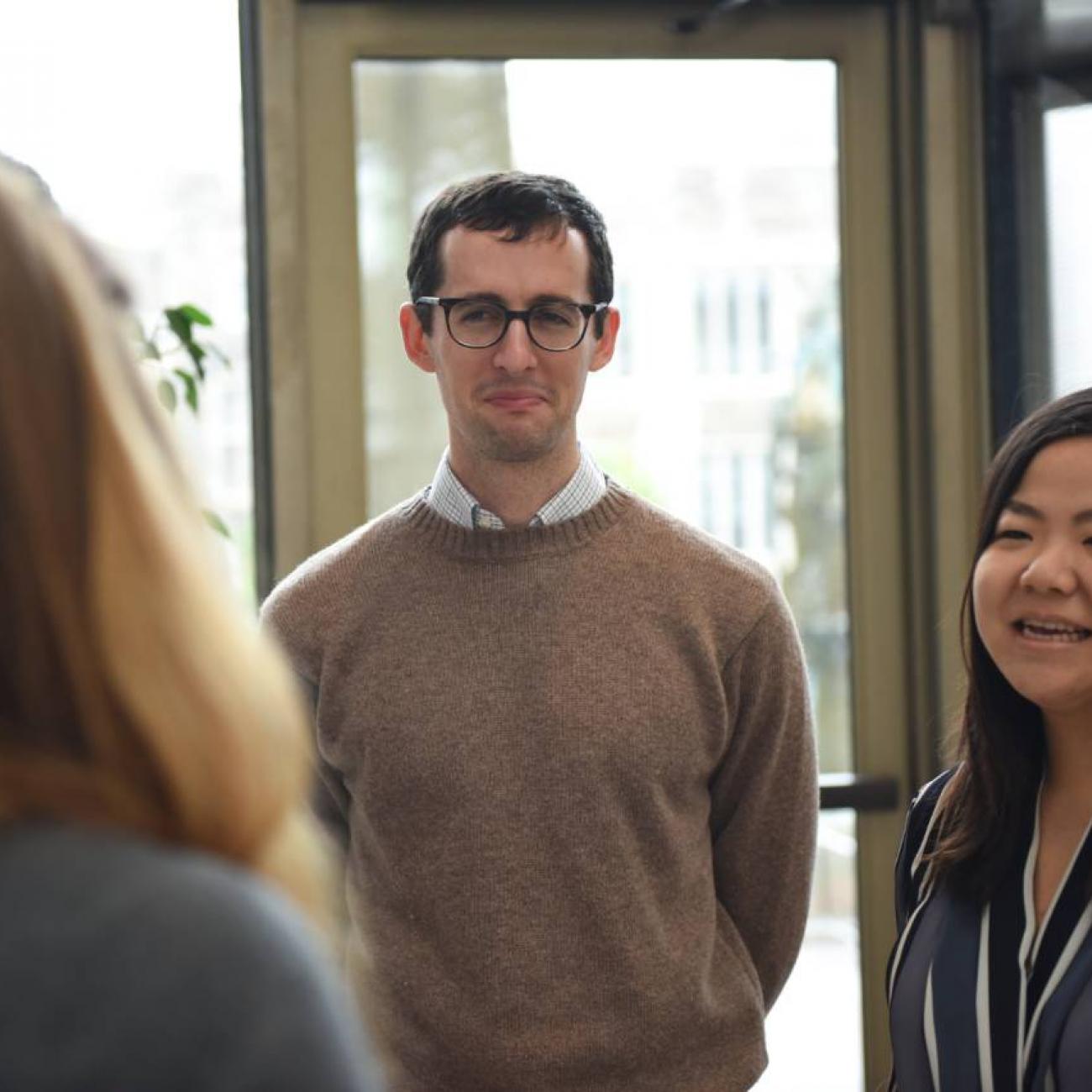
Job Placement

While students complete their dissertations, the department works actively to help them find appropriate employment. The following Ph.D. students and recent graduates are seeking employment this academic year.
| Candidate | Fields of Study | Dissertation Title | Advisors |
|---|---|---|---|
| Comparative Politics, Public Law | Legal Authoritarianism: Law, Police, and Courts in China | Rory Truex, Mark R. Beissinger | |
| , | American Politics, Formal Theory & Quantitative Methods, Political Economy | Three Essays on the Strategic Use of Information by Interest Groups | Nolan McCarty, Brandon Stewart, Charles Cameron, Hye Young You |
| Political Theory | Dissertation title: "England, Arise!" Socialism Against Civilization in Victorian Britain" Current Book Project: 'Representing Desire: Sexual Liberation and the Shaping of the British Left" | ||
| , | American Politics, International Relations | Political Responses to Economic Changes | Helen V. Milner, Tali Mendelberg, James Raymond Vreeland |
| Comparative Politics | Across the Detroit River: The Electoral Divergence of the North American White Working Class | Christopher Achen, Paul Frymer, Mark R. Beissinger, Peter Loewen | |
| Political Theory | Augustine and the Politics of Contingency | Robert P. George, Gregory Conti, Eric Gregory | |
| , | American Politics | Congress in Crisis: Institutional Performance Under Pressure | Frances Lee, Nolan McCarty, Hye Young You, Julian Zelizer |
| , | Comparative Politics, International Relations, Formal Theory & Quantitative Methods, Political Economy | The Political Economy of Intellectual Property Rights in Trade | Helen V. Milner, James Raymond Vreeland, Kristopher Ramsay |
| , | International Relations | Women after War: The Re-gendering of Labor in Postwar Societies" | Carles Boix, Christopher Blair, Melissa M. Lee |
| , | International Relations | Internationalized Territories: The Politics and History of Altered States | G. John Ikenberry, Melissa Lee, Jamie Martin |
| Political Theory | Legitimizing Luxury: Sumptuary Laws and Democratic Aesthetics in Athens, Rome, and Venice | Melissa Lane, Jan-Werner Müller, Harriet Flower, Richard Tuck | |
| , | Comparative Politics | Landscapes of Power: State Formation, Territorial Development and Political Mobilization | Carles Boix, Rafaela Dancygier, Andreas Wiedemann, Saad Gulzar |
| American Politics, Public Law | Essays on Uncertainty in Judicial Decision Makin | Charles Cameron, John Kastellec, Gleason Judd | |
| , | Political Theory | Gender Abolition | Stephen Macedo, Melissa Lane |
| , | Comparative Politics, Formal Theory & Quantitative Methods, Political Economy | The Politics of Dynamic Compromises | Matias Iaryczower, Germán Gieczewski, Carles Boix |
| International Relations, Formal Theory & Quantitative Methods | Ratcheting up Standards: Multinational Corporations in Global Environmental Governance | Helen V. Milner, Kristopher Ramsay, Layna Mosley |
Job Placement History
The department's record in placing graduate students is very strong. Following is a list of first and second placements of recent graduates.
| Name | Position | Institution |
|---|---|---|
| Joseph Ruggiero | Postdoctoral Fellow | Stanford University |
| Sonya Chen | Postdoctoral Fellow (2024-25) Assistant Professor (2025-26) | University of Pennsylvania Barnard College |
| Lewis Krashinsky | Postdoctoral Fellow | University of Toronto |
| Danny Daneri | Assistant Professor | Syracuse University |
| Name | Position | Institution |
|---|---|---|
| Noam Reich | Assistant Professor | Yale University |
| William Horne | Assistant Professor | Clemson University |
| Tiffany Barron | Assistant Professor | University of Tennessee, Knoxville |
| Derek Wakefield | Postdoctoral Fellow | Emory University |
| Sayumi Miyano | Postdoctoral Fellow (2023-24) Assistant Professor (Summer 2024) | Harvard University (2023-24) Osaka University (Summer 2024) |
| Peter Giraudo | Postdoctoral Fellow | Goethe Universität Frankfurt |
| Mohammad Isaqzadeh | Assistant Professor | Chapman University |
| Eric Manning | Postdoctoral Fellow | Data Driven Social Science Initiative, Princeton University |
| Arantxa Rodriguez Uribe | Policy and Research Manager | J-PAL Europe at the Paris School of Economics |
| Xiaoxiao Shen | Postdoctoral Fellow | Yale University |
| Gabe Borelli | Research Associate | Pew Research Center |
| Jing Qian | Assistant Professor | New York University, Shanghai |
| Sonny Kim | Postdoctoral Fellow | Nuffield College, University of Oxford |
| Tom Donnelly | Assistant Professor | University of Richmond, School of Law |
| Name | Position | Institution |
|---|---|---|
| Haosen Ge | Data Scientist, Wharton School | University of Pennsylvania |
| Theophile Deslauriers | Postdoctoral Fellow | Amherst College |
| Claire Willeck | Data Scientist | Netflix |
| Will Freeman | Fellow for Latin America Studies | Council on Foreign Relations |
| Zenobia Chan | Nuffield College Prize Research Fellow (2023-26) Assistant Professor (Fall 2024) | Oxford (2023-26) Georgetown (Fall 2024) |
| Jade Ngo | Meta |
| Name | Position | Institution |
|---|---|---|
| Carolyn Barnett | Assistant Professor | University of Arizona, School of Government and Public Policy and School of Middle Eastern and North African Studies |
| Fin Bauer | Appriss | |
| Gabriel Borelli | Research Associate | Pew Research Center |
| Megan Brand | Postdoctoral Fellow | Christopher Browne Center for International Politics, University of Pennsylvania |
| Stephanie Chan | Assistant Professor | Lafayette College |
| Julian Dean | Data Scientist | |
| Daniel Gibbs | Assistant Professor | Virginia Tech |
| Nathan Gibson | Postdoctoral Fellow | Ronald Reagan Presidential Foundation and Institute |
| Ben Hammond | Professional Staff | U.S. Senate Appropriations Committee |
| Will Horne | Postdoctoral Fellow | Executive Approval Project, Georgia State University |
| Dela Kpo | Bain & Company | |
| Naijia Liu | Assistant Professor | Harvard University |
| Michael Pomirchy | Postdoctoral Fellow | Yale University |
| Noam Reich | Postdoctoral Fellow | NYU Abu Dhabi |
| Susanne Schwarz | Assistant Professor | Swarthmore College |
| Bailey Scott | Postdoctoral Fellow | George Washington's Institute for Data, Democracy and Politics |
| Patrick Signoret | Boston Consulting Group | |
| Gaétan Tchakounte Nandong | Assistant Professor | New York University |
| Carissa Tudor | Assistant Professor | University of Amsterdam |
| Name | Position | Institution |
|---|---|---|
| Shuk Ying Chan | Prize Postdoctoral Research Fellow (2021-23) Lecturer in Political Theory (2023 ) | Nuffield College, Oxford University University College London |
| John Chin` | Assistant Teaching Professor | Carnegie Mellon University |
| Daniel Gibbs | Postdoctoral Fellow | Washington University in St. Louis |
| Melinda Haas | Assistant Professor | University of Pittsburgh |
| Galileu Kim | Data Science Consultant | World Bank |
| Michael Kistner | Assistant Professor | University of Houston |
| Alexander Kustov | Assistant Professor | University of North Carolina at Charlotte |
| Rachael McLellan | Lecturer in Politics (tenure-track) | University of Glasgow |
| Erin Miller | Assistant Professor | University of Southern California, Gould School of Law |
| Tommaso Pavone | Assistant Professor | University of Arizona, School of Government and Public Policy |
| Andrew Proctor | Assistant Professor | Wake Forest University |
| Tanika Raychaudhuri | Assistant Professor | University of Houston |
| David Ribar | Consultant | Boston Consulting Group |
| Jose Maria Rodriguez Valadez | Postdoctoral Fellow | Icahn School of Medicine at Mount Sinai |
| Leah Rosenstiel | Assistant Professor | Vanderbilt University |
| James Sasso | Orrick, Herrington & Sutcliffe | |
| Diana Stanescu | Postdoctoral Fellow | Shorenstein APARC at Stanford University |
| Daniel Tavana | Postdoctoral Fellow, 2021-2022 Assistant Professor, 2022 onward | Institute for Advanced Study in Toulouse (IAST) Pennsylvania State University |
| Carissa Tudor | Postdoctoral Fellow, 2021-2023 | Brown University, Watson Institute for International and Public Affairs |
| Elsa Voytas | Postdoctoral Fellow, 2021-2022 Assistant Professor, 2022 onward | Dartmouth IE University |
| Name | Position | Institution |
|---|---|---|
| Paul Baumgardner | Assistant Professor | Belmont University |
| Killian Clarke | Assistant Professor | Georgetown University, School of Foreign Service |
| Chaya Crowder | Assistant Professor | Loyola Marymount University |
| Cassandra Emmons | Postdoctoral Fellow | Harvard University, Weatherhead Center for International Affairs |
| Pavielle Haines | Assistant Professor | Rollins College |
| Dongxian Jiang | Assistant Professor | Department of Modern Languages and Literatures, Fordham University-Lincoln Center |
| Korhan Kocak | Assistant Professor | NYU Abu Dhabi |
| Svetlana Kosterina | Assistant Professor | University of Pittsburgh, Department of Economics |
| Anatoly Levshin | Postdoctoral Research Associate and Lecturer | Princeton University, PIIRS |
| Rachael McLellan | Fellow in Political Science and Public Policy | London School of Economics and Political Science |
| Erin Miller | Postdoctoral Fellow | University of Chicago Law School |
| Steve Monroe | Assistant Professor | Yale-NUS College |
| Saurabh Pant | Assistant Professor | University of Essex |
| Lucia Rafanelli | Assistant Professor | The George Washington University |
| Adam Thal | Research Scientist | |
| Erik H. Wang | Assistant Professor | Australian National University |
| Name | Position | Institution |
|---|---|---|
| Meir Alkon | Postdoctoral Fellow | Harvard University |
| Dan Berbecel | Assistant Professor | Glendon College, York University |
| Chantal Berman | Postdoctoral Fellow | Harvard Academy for International and Area Studies |
| Naoki Egami | Assistant Professor | Columbia University |
| Ted Enamorado | Assistant Professor | University of North Carolina - Chapel Hill |
| Song Ha Joo | Visiting Scholar/Lecturer | Stanford University |
| Suzie Kim | Assistant Professor | NYU, Abu Dhabi |
| Alexander Kustov | Postdoctoral Fellow | Yale University |
| Adeline Lo | Assistant Professor | University of Wisconsin Madison |
| Asya Magazinnik | Assistant Professor | MIT |
| Brandon Miller de la Cuesta | Postdoctoral Fellow | Stanford University |
| Giuliana Pardelli | Assistant Professor | NYU Abu Dhabi |
| Tommaso Pavone | Postdoctoral Fellow | PluriCourts Centre, University of Oslo |
| Andrew Proctor | President's Postdoctoral Fellow | University of Minnesota |
| Lucia Rafanelli | Research Associate | Smith Institute, Chapman University |
| Tanika Raychaudhuri | Postdoctoral Fellow | University of Pennsylvania |
| Sepehr Shahshahani | Associate Professor | Fordham University School of Law |
| Sondre Solstad | Senior Data Journalist | The Economist, London |
| Aaron Tayler | Competitive Intelligence and Strategy Specialist | The Boeing Company |
| Yang-Yang Zhou | Assistant Professor | University of British Columbia |
| Name | Position | Institution |
|---|---|---|
| Nhung Bui | Data Scientist | |
| John DiIulio | Postdoc | James Madison Program, Princeton University |
| Romain Ferrali | Postdoc | New York University, Abu Dhabi |
| Benjamin Fifield | Research Scientist | |
| Sharan Grewal | Assistant Professor | College of William & Mary (following postdoc at Brookings) |
| Pavielle Haines | Postdoc | University of Denver |
| Brittany Holom | Researcher | Visiting Scholar Program, New York University |
| Ben Johnson | Assistant Professor | Penn State Law |
| Amanda Kennard | Assistant Professor | New York University |
| James Lee | Postdoc | European University Institute |
| Darl Lewis | Postdoc | Washington University in St. Louis |
| Lauren Mattioli | Assistant Professor | Boston University |
| Saurabh Pant | Postdoc | Institute for Advanced Study in Toulouse |
| Tyler Pratt | Assistant Professor | Yale University |
| Joan Ricart-Huguet | Postdoc & Lecturer | Yale University |
| Alexander Slaski | Postdoc | Tulane University |
| Adam Thal | Postdoc | Yale University |
| Oskar Timo Thoms | Postdoc | Simon Fraser University in Vancouver, Canada |
| Marie Alienor van den Bosch | Postdoc | Georgetown University |
| Bella Wang | Founding Data Scientist | Group Project |
| David Zuluaga Martinez | Consultant | The Boston Consulting Group |
| Name | Position | Institution |
|---|---|---|
| John Chin | Postdoc | Carnegie Mellon University |
| Colby Clabaugh | Postdoc | Harvard University |
| Peter Johannessen | Postdoc | University of Notre Dame |
| Marcus Johnson | Assistant Professor | CUNY Baruch College |
| Mary Kroeger | Assistant Professor | University of Rochester |
| Katie McCabe | Assistant Professor | Rutgers University |
| Vladimir Medenica | Postdoc | University of Chicago |
| Christoph Mikulaschek | Postdoc | Harvard University |
| Elizabeth Nugent | Assistant Professor | Yale University |
| Yuki Shiraito | Assistant Professor | University of Michigan (following postdoc at Dartmouth College) |
| Geoff Sigalet | Postdoc | Stanford University |
| Vinay Sitapati | Assistant Professor | Ashoka University |
| Name | Position | Institution |
|---|---|---|
| Carolyn Abott | Postdoc | Ohio State University |
| Ryan Brutger | Assistant Professor | University of Pennsylvania |
| Benjamin Ewing | Visiting Assistant Professor | Duke University Law School |
| Michael Hoffman | Assistant Professor | Notre Dame University |
| Richard Jordan | Assistant Professor | Baylor University |
| Patricia Kim | Postdoc | Princeton-Harvard China and the World Program |
| Theodore Lechterman | Postdoc | Stanford University |
| Erin Lin | Assistant Professor | Ohio State University |
| Gabriel Lopez Moctezuma | Assistant Professor | CalTech (following postdoc at Yale University) |
| Kevin Mazur | Postdoc | Oxford University |
| Matthew Tokeshi | Assistant Professor | Williams College |
| Carlos Velasco Rivera | Postdoc | Institute for Advanced Studies Toulouse |
| Austin Wright | Assistant Professor | University of Chicago, School of Public Policy |
| Name | Position | Institution |
|---|---|---|
| Alex Acs | Assistant Professor | Ohio State University |
| Sean Beienburg | Assistant Professor | Lehigh University |
| Graeme Blair | Assistant Professor | University of California, Los Angeles |
| Alex Bolton | Postdoc | Duke University |
| M. Emilee Chapman | Assistant Professor | Stanford University |
| Yiftah Elazar | Assistant Professor | Hebrew University |
| Sarah El-Kazaz | Assistant Professor | Oberlin College |
| Paul Gardner | Postdoc | Syracuse University |
| Aram Hur | Postdoc | New York University |
| Matt Incantalupo | Visiting Assistant Professor | Haverford College |
| Raymond Kuo | Assistant Professor | Fordham University |
| Alex Lanoszka | Postdoc | Dartmouth College |
| Trevor Latimer | Postdoc | University of Georgia |
| Matthew McCoy | Postdoc | University of Pennsylvania |
| Dinsha Mistree | Postdoc | Stanford University |
| Rohan Mukherjee | Assistant Professor | Yale-NUS College |
| John Oliphant | Research Associate | Pew Research Center |
| Bryn Rosenfeld | Assistant Professor | University of Southern California |
| Alex Ruder | Assistant Professor | University of South Carolina |
| Joshua Vandiver | Visiting Assistant Professor | Williams College |
| Name | Position | Institution |
|---|---|---|
| Scott Abramson | Assistant Professor | University of Rochester |
| Alex Acs | Visiting Professor | American Academy of Arts and Sciences |
| Michael Barber | Assistant Professor | Brigham Young University |
| Matthew Barnes | Assistant Professor | West Virginia University |
| Graeme Blair | Postdoc | Columbia University |
| Brookes Brown | Assistant Professor | Clemson University |
| Tom Dannenbaum | Lecturer (tenure track) | University College London |
| Michael Donnelly | Assistant Professor | University of Toronto |
| Loubna El Amine | Assistant Professor | Georgetown University |
| Sarah El Kazaz | Postdoc | Brandeis University |
| Yanilda Gonzalez | Postdoc | Harvard University |
| Sarah Hummel | Assistant Professor | University of Illinois |
| Chris Kendall | Assistant Professor | University of Puget Sound |
| In Song Kim | Assistant Professor | Massachusetts Institute of Technology |
| Raymond Kuo | Assistant Professor | SUNY, Albany |
| Michael Lamb | Postdoc | University of Oxford |
| Alex Lanoszka | Postdoc | Massachusetts Institute of Technology |
| Adam Liff | Assistant Professor | Indiana University, School of Global and International Studies |
| Michael McKoy | Assistant Professor | Wheaton College |
| Herschel Nachlis | Assistant Professor | Franklin and Marshall College |
| Steve Rogers | Assistant Professor | Saint Louis University |
| Julie Rose | Assistant Professor | Dartmouth College |
| Meredith Sadin | Postdoc | Robert Wood Johnson Health and Policy, Berkeley |
| Steve Snell | Postdoc | Duke University |
| Joshua Vandiver | Lecturer | University of Chicago |
| Meredith Wilf | Assistant Professor | University of Pittsburgh |
| Name | Position | Institution |
|---|---|---|
| Lamis Abdelaaty | Assistant Professor | University of California, Santa Cruz |
| Michael Becher | Assistant Professor | University of Konstanz |
| Deborah Beim | Assistant Professor | Yale University |
| Peter Buisseret | Assistant Professor | University of Warwick |
| Erica Czaja | RWJF Scholar | University of California, Berkeley |
| Michael Donnelly | Postdoc | European University Institute |
| Rex Douglass | Postdoc | University of California, San Diego |
| Daniel Frost | Assistant Professor | Clemson University |
| Matteo Giglioli | Postdoc | Institut d'Etudes Politiques de Paris |
| Sarah Goff | Postdoc | London School of Economics |
| Alex Levitov | Postdoc | Stanford University |
| Daniel Mark | Assistant Professor | Villanova University |
| Oriana Mastro | Assistant Professor | Georgetown University, School of Foreign Service |
| Benjamin McKean | Assistant Professor | Ohio State University |
| Michael Miller | Assistant Professor | George Washington University |
| Melissa Moschella | Assistant Professor | Catholic University of America |
| Dan Myers | Assistant Professor | University of Minnesota |
| Alex Ruder | Researcher | Rutgers University |
| Sharece Thrower | Assistant Professor | University of Pittsburgh |
| Name | Position | Institution |
|---|---|---|
| Samuel Arnold | Assistant Professor | Texas Christian University |
| Stephen Chaudoin | Assistant Professor | University of Pittsburgh |
| Loubna El Amine | Postdoc | Yale University |
| Andrea Everett | Assistant Professor | University of Georgia |
| Sandra Field | Assistant Professor | Yale National University of Singapore College |
| Jessica Flanigan | Assistant Professor | University of Richmond |
| Shana Gadarian | Assistant Professor | Syracuse University |
| Nick Goedert | Postdoc | Washington University |
| Sarah Goff | Postdoc | Goethe University Frankfurt |
| Thomas Hale | Postdoc | University of Oxford |
| Kristin Harkness | Postdoc | University of Notre Dame |
| Javier Hidalgo | Assistant Professor | University of Richmond |
| David Hsu | Postdoc | University of Pennsylvania |
| Quinton Mayne | Assistant Professor | Harvard University |
| Gwyneth McClendon | Assistant Professor | Harvard University |
| Michael McKoy | Postdoc | Rutgers University |
| Kanta Murali | Assistant Professor | University of Toronto |
| Julie Rose | Postdoc | Brown University |
| Michael Sullivan | Assistant Professor | St. Mary’s University |
| Philip Wallach | Fellow | Brookings Institution |
| Name | Position | Institution |
|---|---|---|
| Mary Beth Ehrhardt Altier | Postdoc | The Pennsylvania State University |
| Samuel Arnold | Postdoc | Stanford University |
| Sarah Bush | Assistant Professor | Temple University |
| Nicholas Carnes | Assistant Professor | Duke University, Public Policy School |
| Jing Chen | Assistant Professor | Eckerd College |
| Lauren Davenport | Assistant Professor | Stanford University |
| Yiftah Elazar | Postdoc | Hebrew University |
| David Glick | Assistant Professor | Boston University |
| Javier Hidalgo | Postdoc | Brown University |
| Eva Kaye-Zwiebel | Postdoc | Occidental College |
| Ben Lauderdale | Lecturer (tenure track) | London School of Economics |
| Noam Lupu | Assistant Professor | University of Wisconsin-Madison |
| Dan Myers | Postdoc | Robert Wood Johnson |
| Genevieve Rousseliere | Postdoc | University of Chicago |
| James L. Wilson | Collegiate Assistant Professor | University of Chicago Society of Fellows |
| Michael Woldemariam | Assistant Professor | Boston University |
| Teppei Yamamoto | Assistant Professor | Massachusetts Institute of Technology |
| Name | Position | Institution |
|---|---|---|
| Melody Crowder-Meyer | Assistant Professor | Sewanee: University of the South |
| Megan Francis | Assistant Professor | Pepperdine University |
| Katie Gallagher | Lecturer | Harvard University |
| Daniel Lee | Fellow | Columbia: Society of Fellows |
| Benjamin McKean | Fellow | University of Chicago: Society of Fellows |
| Dustin Tingley | Assistant Professor | Harvard University |
| Emily Zackin | Assistant Professor | Hunter College |
Program for Quantitative and Analytical Political Science
Welcome to qaps.
The Program for Quantitative and Analytical Political Science (QAPS) was established in 2009 to support theoretical and quantitative research in political science and its dissemination. We support graduate students through QAPS fellowships , host post-doctoral research fellows, offer statistical and formal theory consulting , hold quantitative skills workshops , throw conferences, and organize the Quantitative Social Science Colloquium .
Future Events
Currently, there are no future events. Please contact us if you would like us to provide a methodology workshop that will benefit your research agenda.
We are happy to announce exciting updates from QAPS! We recently welcomed Tolgahan Dilgin as the QAPS Statistical Services Manager. For those who remember Will Lowe, Tolgahan will be serving in a very similar role. Stay tuned for updates on our upcoming workshops, and for information on how to utilize our consultancy services.
Previous Events
Recent experimental studies in the social sciences have demonstrated that short, perspective-taking conversations are effective at reducing prejudicial attitudes and support for discriminatory public policies, but it is unclear if such interventions can directly affect policy views without changing prejudice. Unfortunately, the identification…
This paper considers the problem of inference in cluster randomized trials where treatment status is determined according to a "matched pairs'' design. Here, by a cluster randomized experiment, we mean one in which treatment is assigned at the level of the cluster; by a "matched pairs'' design we mean that a sample of clusters is paired…
In fields like natural language processing, social problems are often operationalized as linguistic problems that can be analyzed and addressed with linguistic expertise and language technologies. I'll present some conceptual work that examines this practice and its implications, drawing on examples from police reform and online content…
Prerequisites: We assume prior familiarity with base R.
Audience: The workshop is tailored for individuals keen on refining their R data manipulation skills and will enable you to have hands-on practice with real-world data coming from public opinion surveys.
Important Note: …
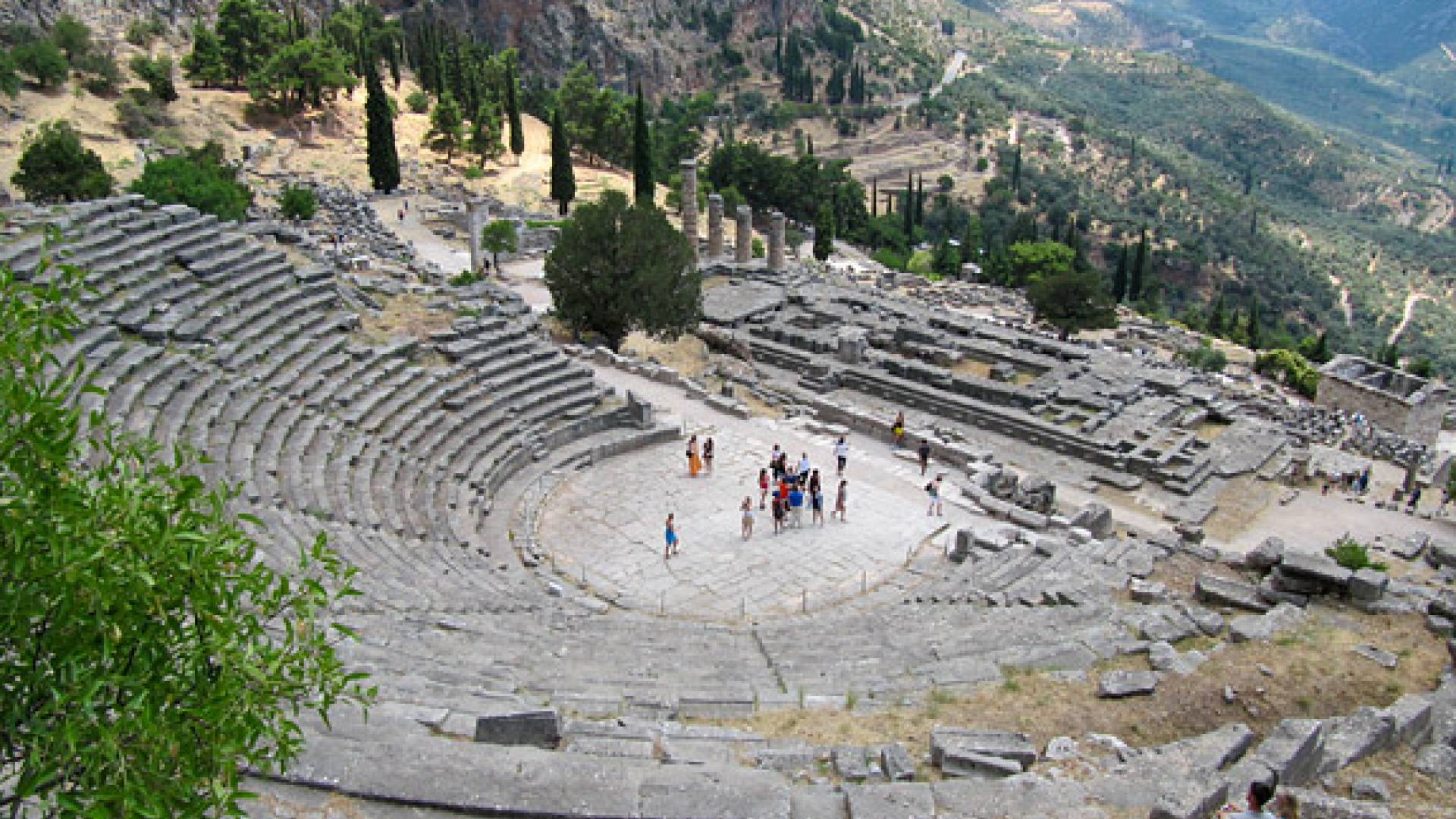
- Social Sciences
- Engineering
- Natural Sciences
Whether improving national security, exploring issues of poverty, explaining human behavior or taking a critical look at international trade, research in the social sciences at Princeton strives to advance of knowledge of human society and address some of the largest societal problems of the 21st century.
African American Studies
For students who wish to study the complex interplay between political, economic and cultural forces shaping the historic achievements and struggles of African-descended people in the United States and their relationship to others around the world.
Academic Units
- Department of African American Studies
Degrees, Certificates & Minors
- Undergraduate certificate
- Graduate certificate
African Studies
The minor in African studies provides opportunities to learn about the continent. The program offers classes in Africa's political, economic and social history; built environments and urban geographies; ecology, genetic diversity and epidemiological concerns. The program also offers classes in Africa's vibrant art scenes, past and present, where literature, music and art have come to define a new post-colonial African cosmopolitanism.
- Program in African Studies
- Undergraduate minor
American Studies
The program aims to give students an understanding of American society — its culture, its institutions, its intellectual traditions, and the relationships among its diverse people. We encourage study and debate about America’s place in the world and the world in America, as well as what it means to grapple with the horizons and limits of its democratic aspirations.
- Program in American Studies
Anthropology
Anthropology is the study of human experience and social change. Through situated and relational methods, anthropology considers the ways people think, act and make sense of their lifeworlds, against the backdrop of multiple structural forces and across intersecting domains and scales. Always in a deep interdisciplinary dialogue, the connections between ethnography, theory, social engagement and storytelling are a hallmark of anthropology.
- Department of Anthropology
Asian American Studies
The Program in Asian American Studies, administered by the Effron Center for the Study of America, provides students with the opportunity to gain an interdisciplinary perspective on the diversity of Asian American and Pacific Islander histories, cultures and contemporary experiences. The course of study focuses on the emergence of this pan-ethnic group in the United States, but also highlights Asian America’s transnational connections and contexts, including the dynamics of globalization, migration, imperialism and post-coloniality.
- Program in Asian American Studies
Cognitive Science
Cognitive science is the study of how the mind works, drawing on research from psychology, philosophy, linguistics, neuroscience and computer science. The interdisciplinary character of cognitive science reflects different levels of analysis of mental phenomena and their employment of a variety of methodologies appropriate to each level.
- Program in Cognitive Science
Contemporary European Politics and Society
The program encourages the interdisciplinary study of modern Europe, with a particular focus on politics, economics and society in western and central Europe since World War I.
- Program in Contemporary European Politics and Society
Princeton has one of the finest economics departments in the world. Economics is consistently one of the most popular undergraduate concentrations on campus and attracts a diverse group of students with a broad range of interests. The graduate program provides thorough training in both the techniques and applications of economic analysis.
- Department of Economics
Entrepreneurship
The program aims to supplement undergraduates in their major departments with an understanding and practice in entrepreneurship.
- Program in Entrepreneurship
Environmental Studies
The undergraduate program engages the scientific, political, humanistic and technological dimensions of environmental challenges facing the world today. Students majoring in any discipline may pursue either a generalist track or a specialist track that explores biodiversity and conservation, climate and energy, Earth systems, environmental policy or environment and water. The graduate program broadens the educational perspective of doctoral students by exploring policy aspects of their environmental research.
- Program in Environmental Studies
European Cultural Studies
The program deepens students' understanding of European civilization and strengthens their command of cultural interpretation through interdisciplinary investigation. The program focuses on the ways in which European societies, past and present, order reality, make sense of life and communicate meaning across a range of disciplines and in a wide variety of media.
- Program in European Cultural Studies
The undergraduate program focuses on the pricing of financial assets (including equities, bonds, currencies and derivative securities), portfolio management and the evaluation of financial risks, banking and financial intermediation, the financing of corporations, corporate governance, financial-market and banking regulation, and many other topics.
The graduate program places a strong emphasis on financial economics in addition to financial engineering and computational methods. Students will develop a solid understanding of the fundamental quantitative tools from computer science, economic theory, optimization, probability and statistics — all of which are becoming increasingly vital in the financial industry.
- Program in Finance
Gender and Sexuality Studies
The undergraduate and graduate programs are dedicated to the study of gender and sexuality, as well as their intersections with race, class, ethnicity and disability, across cultures and global geographies both past and present.
- Program in Gender and Sexuality Studies
Global Health and Health Policy
The program enables undergraduates to study the determinants, consequences and patterns of disease across societies, the role of medical technologies and interventions in health improvements, and the economic, political and social factors that shape domestic and global public health policy.
- Program in Global Health and Health Policy
Health and Health Policy
The graduate program trains graduate students for careers in health-related areas in the public and not-for-profit sectors. The program is designed for students with domestic and international health interests and provides both broad training in core topics in health and health policy as well as courses in specialized areas.
- SPIA Graduate Programs and Certificates
The undergraduate program encourages students to gain further knowledge of the major developments in, and problems of, history, to do independent historical research and writing, and to develop an authoritative knowledge of one particular field of history.
The graduate program values an approach to scholarship grounded in the particular while retaining a sense of the whole. Students take a comprehensive view of history with the goal of cultivating a far-reaching understanding of the past. Throughout their enrollment, students develop the necessary skills to conduct discipline-defining research.
- Department of History
History and the Practice of Diplomacy
The program offers undergraduate students the opportunity to pursue concentrated interdisciplinary study of history and diplomacy in concert with internships in the practice of diplomacy and related professions.
- Program in History and the Practice of Diplomacy
History of Science
The graduate program aims to enhance students' enthusiasm for the subject while also training them for the joint professional responsibilities of teaching and research. The program treats science as an intellectual, cultural and social phenomenon, and provides students with special training and techniques not normally included in the education of professional historians while at the same time preparing them to teach and work in general history.
- Program in History of Science
History of Science, Technology and Medicine
Students will learn from the array of methodological approaches developed by historians of science, technology and medicine, and track the evolution of modern science from antiquity to the present, in many of the world’s cultures.
Judaic Studies
The undergraduate program provides students the opportunity to explore more than three millennia of Jewish culture, history, religion, thought, politics and literature from the Bible to contemporary Jewish thought and society from an interdisciplinary perspective.
- Program in Judaic Studies
Latin American Studies
The undergraduate and graduate programs promote interdisciplinary study to inspire knowledge of and experience in Latin America.
- Program in Latin American Studies
Latino Studies
The undergraduate program traverses the arts, humanities and social sciences, seeking to provide students with a broad understanding of the emergence, transformation and consolidation of Latinos as a pan-ethnic group and to appreciate the range of Hispanic imprints on American society and culture.
- Program in Latino Studies
Linguistics
Linguistics is the study of the distinctive properties of human language and the cognitive capacities of language users, including the rules that govern the patterns of particular languages and universal principles governing all languages. Linguists investigate the grammatical principles and processes that determine the structure of human languages, their evolution over time, and their psychological underpinnings.
- Program in Linguistics
Medieval Studies
The undergraduate program encourages the interdisciplinary study of the Middle Ages: its art, literature (Latin and vernacular), music, religion, science, philosophy, politics, and economic and social structures.
- Program in Medieval Studies
Undergraduate study is focused in four areas: American politics, comparative politics, international relations and political theory. There also is a strong concentration of courses in the areas of quantitative analysis, political economy, and strategy in politics.
The graduate program is designed to offer broad professional training in political science and to enable students to specialize in any of the main subfields of political science, as well as public law, and formal and quantitative analysis.
- Department of Politics
Population Studies
The graduate program draws on substantive and methodological specializations in the social, mathematical and biological sciences. Building on its historical strengths in signature fields such as demographic methods, fertility, health and mortality, the program embraces prominent fields in population studies, such as international migration and development, children, youth and families, as well as various aspects of social and economic inequality. In addition, researchers are involved in new fields of inquiry such as epigenetics, biodemography, social epidemiology and web-based experimentation.
- Program in Population Studies
The undergraduate program provides a rigorous understanding of human behavior and mental processes through foundational and advanced courses on sensation, perception, movement, language, reasoning, decision-making, social interaction and computational models of the brain. The psychology concentration also provides a grounding in neuroscience, since mental processes and behavior arise from the brain.
The graduate program emphasizes preparation for research and teaching in psychology, with specialization in cognitive neuroscience, developmental psychology, language, learning and memory, perception and cognition, the psychology of inequality, social neuroscience, social psychology, and systems neuroscience.
- Department of Psychology
Public Policy (Princeton School of Public and International Affairs)
The Princeton School of Public and International Affairs offers a multidisciplinary liberal arts major for undergraduates who desire to be engaged in public service and become leaders in the world of public and international affairs. The curriculum is founded on courses relevant to the study of policymaking, policy analysis and policy evaluation. Students take courses in economics, politics, and either psychology or sociology.
The graduate program offers a distinctive educational approach that strikes a careful balance between theory and practice. Graduate students spend time developing analytical skills and acquiring a substantive knowledge about the world's most important domestic and international issues. The two-year curriculum leads to the degree of Master in Public Affairs. Students can earn a dual degree in public affairs and law after four years of study in the school and a collaborating law school. The school also has a graduate program leading to a Doctor of Philosophy in public and international affairs, as well as a one-year Master in Public Policy for mid-career professionals.
- Princeton School of Public and International Affairs
- M.P.A./J.D.
Quantitative Economics
The minor in quantitative economics allows quantitatively inclined students to gain access to economics, with a course of study that is tailored to their interests and skills.
Russian, East European and Eurasian Studies
The undergraduate program draws on the humanities, history and social sciences to study Russia, Eastern Europe and Eurasia. Students develop expertise in a core language of Eurasia and a scholarly grounding in the study of the region.
- Program in Russian, East European and Eurasian Studies
Science, Technology and Environmental Policy
The graduate program develops a deep understanding of current scientific, technological and environmental issues and potential local, national and international policy responses through a systematic introduction to the field of policy analysis. The program provides interdisciplinary training that facilitates communication between technical experts and policy makers.
- Program in Science, Technology and Environmental Policy
Social Policy
The graduate program addresses some of the most pressing problems in the U.S. and around the world where inequality generates conflict, poverty and prejudice, diminishes political participation, and reduces opportunities for social mobility. Students learn using the most rigorous tools of social science to bear on these important questions.
- Joint Degree Program in Social Policy
- Joint Degree (Ph.D.)
The undergraduate program offers students a cutting-edge approach to the study of the social dimensions of politics, economics, history, psychology and demography. Students engage in cross-disciplinary thinking in addition to a thorough grounding in a single field. Both quantitative and qualitative approaches to social science are utilized by our students and faculty.
The graduate program is oriented toward the foundations of sociological analysis, including sociological theory, research methods and social statistics, and making significant contributions to the sociological literature.
- Department of Sociology

South Asian Studies
The undergraduate program offers students the methodological and theoretical tools to study the political, economic, social, religious, literary and cultural institutions of the region with particular focus on the modern history of India and Pakistan. Students take a four-term sequence of language instruction in Hindi, Urdu and Sanskrit.
- Program in South Asian Studies
Statistics and Machine Learning
The undergraduate program is designed for students who have a strong interest in data analysis and its application across disciplines. Statistics and machine learning — the academic disciplines centered around developing and understanding data analysis tools — play an essential role in various scientific fields including biology, engineering and the social sciences.
The graduate certificate is designed to formalize the training of students who contribute to or make use of statistics and machine learning as a significant part of their degree program. In addition, it serves to recognize the accomplishments of graduate students across the University who acquire additional training in statistics and machine learning, going beyond the requirements of their own degree programs.
- Program in Statistics and Machine Learning
Teacher Preparation
The program combines coursework, seminars, laboratory experience, fieldwork and practice teaching to become fully prepared and certified to teach successfully at the middle- and secondary school levels. Participants can earn certification in art, English, mathematics, music, the sciences, social studies and world languages. The program is approved by the New Jersey Department of Education and by the Council for the Accreditation of Educator Preparation.
- Program in Teacher Preparation
Technology and Society
The undergraduate program is targeted to students, both engineers/scientists and humanists/social scientists, who are interested in exploring the intersection of society and technology. Programs of study are offered under information technology and energy tracks.
- Center for Information Technology Policy (information technology track)
- Andlinger Center for Energy and the Environment (energy track)
Urban Policy
The certificate in urban policy emphasizes the social, economic and political dimensions of urban problems. It is designed to prepare students for careers in urban policy analysis and economic development in national, state and local governments, nonprofit organizations, think tanks and international organizations.
- Certificate in Urban Policy
Urban Studies
The undergraduate program offers an interdisciplinary framework for the study of cities, metropolitan regions, and urban and suburban landscapes.
- Program in Urban Studies
Values and Public Life
The undergraduate program focuses on modes of inquiry into important ethical issues in public life. The program helps students develop competence in pursuing such inquiries generally and supports them in applying these intellectual skills to the advanced analysis of one or more related topics. Students will be equipped to bring informed discussion of values into the public sphere and to integrate a critical value perspective into their future studies and pursuits.
- Program in Values and Public Life
Joint Degree Program in Social Policy

Alisson Ramos

Alisson Ramos is a PhD Student in Politics and Social Policy. Her specialization lies in American politics and Racial and Ethnic politics. She received her BA from the University of California Los Angeles (UCLA) in political science and chicano/a studies. She identifies as a first-generation college student, Angeleno, and Latina.
Graduate School

Political Economy
General information, program offerings:.
- Interdepartmental Program
Department for program:
Director of graduate studies:, graduate program administrator:.
The allocations of markets and other economic institutions are subject to the political environment in which these institutions operate. Students interested in understanding the effects and the design of economic policies should have an appreciation of the political context in which these policies are set. At the same time, students interested in political outcomes and institutions must consider the economic forces that interact with the political realm. Work in political economy aims to develop theoretical and empirical understanding of the connections between economics and politics.
The Princeton Program in Political Economy is designed for students who seek to engage in scholarship at the intersection of the two disciplines. It enables students in the Department of Economics or the Department of Politics to supplement their disciplinary training with relevant study in the other department and to engage in specialized work in political economy. The program also provides for interaction among students and faculty members of these academic units and facilitates research on topics in political economy. The program is administered by a program committee drawn from faculty in the participating academic units.
Closely affiliated with the doctoral program is the Research Program in Political Economy (RPPE). RPPE sponsors research workshops and colloquia, conferences, short-term visits to Princeton by scholars who work in political economy, and grants to students to aid their research in political economy.
Students join the program by entering either the Department of Economics or the Department of Politics through the normal admission process and will receive the doctoral degree of their home department. Students applying to one of these units who are interested in the program should indicate this interest in their applications.
Students intending to enroll in the program should have a solid foundation in mathematics. Ordinarily, students will take a course offered by the economics department (S500, Mathematics for Economists) in order to further develop the required competence in mathematics. Regardless of how a student enters the Program in Political Economy, it is important to have some experience with multivariate calculus, linear algebra, and real analysis, as well as basic probability and statistics. Without this background, a student will not be able to handle the material in many of the courses required for completion of the program.
Students are expected to fulfill the normal requirements of their home departments, with some modifications for the Program in Political Economy.
Program Offerings
Program offering: interdepartmental program.
Economics students are required to take, on a graded basis, two graduate courses in politics (other than POL 584, the politics half of the political economy sequence) chosen from a list of appropriate courses drawn up by the program committee. These two courses would count toward the fulfillment of the second-year course requirement for economics graduate students.
Politics students should take the two-semester political economy sequence ECO 520 and POL 584. In addition, students are required to take, on a graded basis, two graduate courses in economics, not including the economics part of the political economy sequence (ECO 520). Normally, these would be the microeconomics courses ECO 501 and 502, but others may be substituted with approval from the program committee.
General exam
To prepare for their general examinations in political economy, students are expected to master the material covered in a two-course sequence in political economy (ECO 520 and POL 584). These courses will be offered jointly by the economics and politics departments. The general examination in political economy is set by a committee appointed by the program committee.
Economics students are required to choose political economy as one of their two field general examinations, and politics students are required to designate political economy as one of their three fields for the general examination and must take the written general examination in political economy.
Dissertation and FPO
All students in the program are expected to write a dissertation on a topic in political economy.
Additional requirements
All students in the program are also expected to participate regularly in a research workshop in political economy.
- Matias Iaryczower
Associated Faculty
- Roland J. Benabou, Schl of Public & Int'l Affairs
- Carles Boix, Schl of Public & Int'l Affairs
- Charles M. Cameron, Schl of Public & Int'l Affairs
- Thomas Fujiwara, Economics
- German S. Gieczewski, Politics
- Gene M. Grossman, Schl of Public & Int'l Affairs
- Faruk R. Gul, Economics
- Gleason Judd, Politics
- Ilyana Kuziemko, Economics
- David S. Lee, Schl of Public & Int'l Affairs
- Alessandro S. Lizzeri, Economics
- John B. Londregan, Schl of Public & Int'l Affairs
- Nolan McCarty, Schl of Public & Int'l Affairs
- Atif R. Mian, Schl of Public & Int'l Affairs
- Helen V. Milner, Schl of Public & Int'l Affairs
- Pietro Ortoleva, Schl of Public & Int'l Affairs
- Wolfgang Pesendorfer, Economics
- Grigore Pop-Eleches, Schl of Public & Int'l Affairs
- Kristopher W. Ramsay, Politics
- Maria Micaela Sviatschi, Schl of Public & Int'l Affairs
- Rocío Titiunik, Politics
- Leonard Wantchekon, Politics
- Leeat Yariv, Economics
For a full list of faculty members and fellows please visit the department or program website.
- Research Centers
- Academic Programs
- Princeton University
- News & Activities
- Prospective Majors
- Major Requirements
- Course Selection
- Independent Work
- Other Rules and Grading Guidelines
- Economics Statistical Services (ESS)
- Minors and Programs
- Study Abroad and Internship Milestone Credit
- Funding, Research Assistant, and Career Opps
- Common Questions
- Ph.D. Admissions
- Current Students
- Course Offerings
- Job Market and Placements
- Graduate Student Directory
Meet Our Team
The Economics Department at Princeton is home to more than sixty faculty members and hosts dozens of visitors, postdocs, and research fellows every year.
In addition to working alongside these researchers and organizing hundreds of seminars and events every year, our team of operational and administrative professionals support a diverse group of undergraduate and Ph.D. students as they pursue their degrees at one of the top economics departments in the world.
All of that work keeps us very busy! But if you’re new to the Economics Department, we know it can be hard to meet everyone on the team and figure out who does what. To help, here’s a quick list of our team members, with more information about who we are, what we do, and how to contact us.
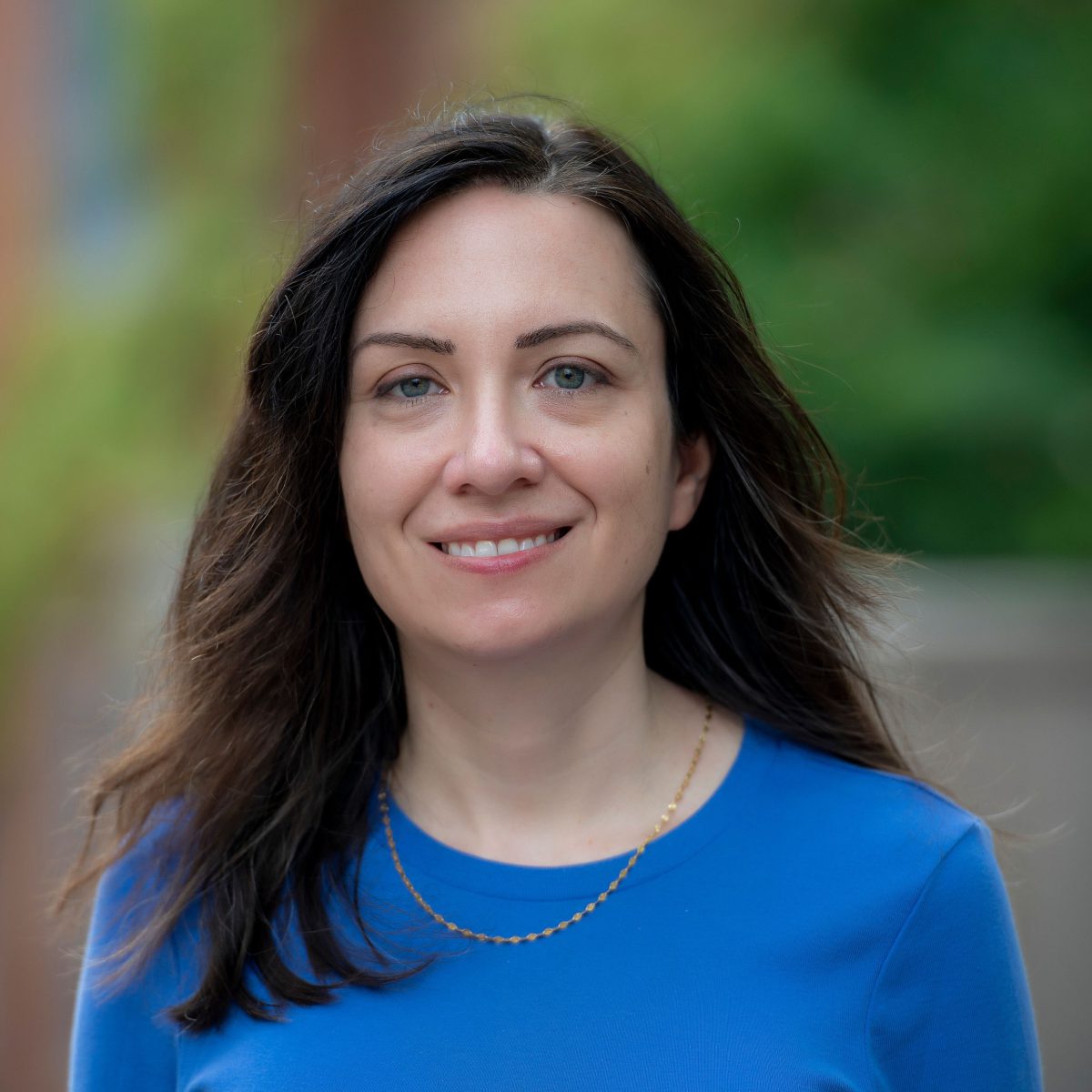
Laura Hedden
Graduate Program Administrator [email protected] | extension: 8-4006 Laura Hedden has been the department’s Graduate Program Administrator since 2010. Prior to joining the Department of Economics, Laura was an adjunct professor of music at Rider University and Westminster Choir College, and a lecturer in Princeton’s Department of Music. Laura holds a Bachelor of Arts in Music and a Master of Fine Arts in Musicology from Penn State University, where she played cello in several ensembles, and a Ph.D. in Musicology from Princeton. After graduation she gradually realized that the last time Musicology was profitable was Prince’s 2004 album release, and gratefully accepted a full-time position in the department. She found a new sense of purpose in helping our graduate students make the most of their experience in the Ph.D. program. Laura hails from a small town in northeastern Pennsylvania and still can’t find her way around New Jersey. When she isn’t working, which isn’t very often, you can probably find her in one of the local refuges photographing birds. She still enjoys playing her cello and would love to talk to you about your own musical interests or hobbies.
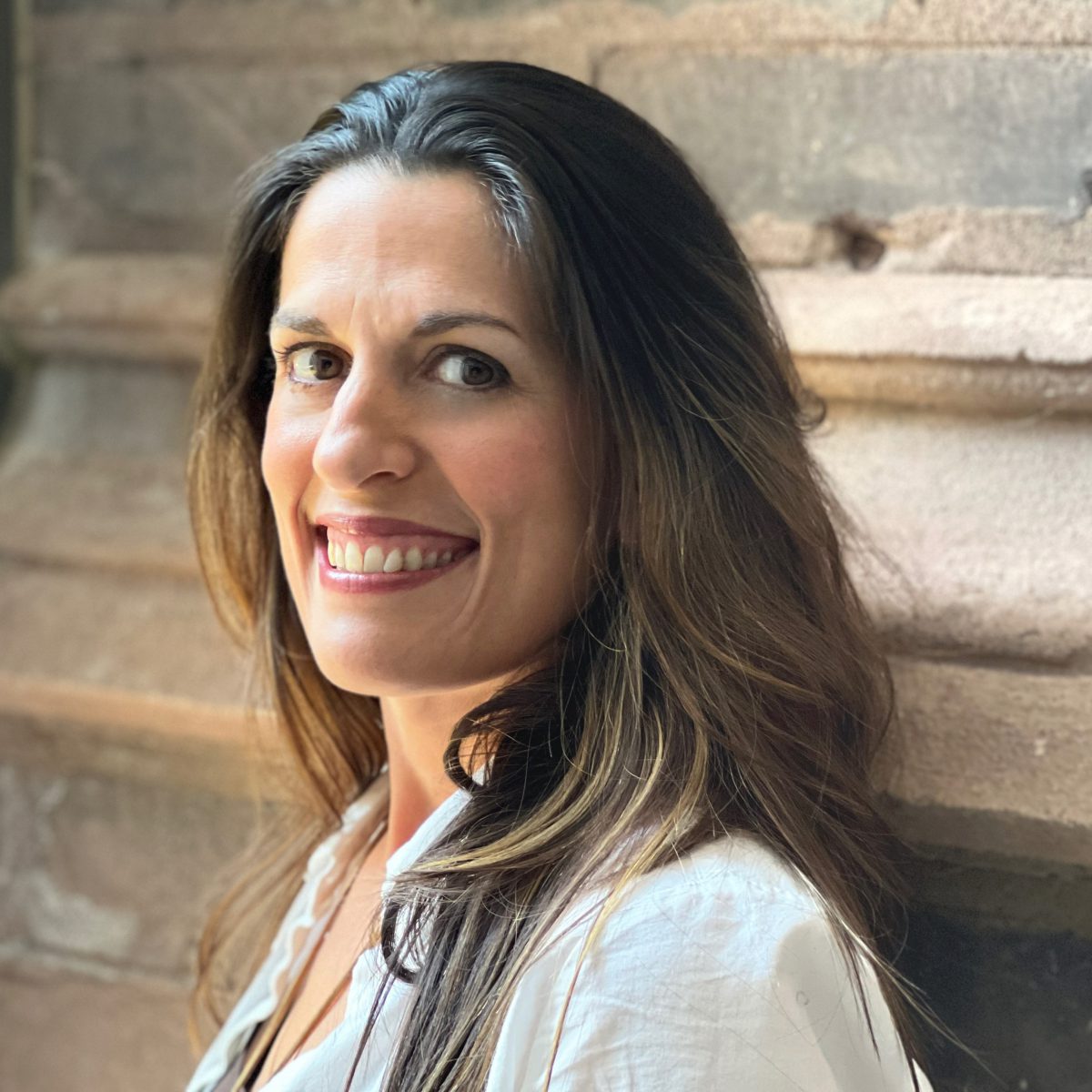
Gina Holland
Undergraduate Program Manager [email protected] | extension: 8-0920 Gina Holland is the Undergraduate Program Manager for the Department of Economics. Gina holds a B.F.A in Musical Theatre from the University of Hartford and a Masters of Education in Diversity and Education from the University of Illinois at Urbana-Champaign. Co-Mom to two girls (18 and 8!) with her wife Maxine, Gina and her family live near the beach in Monmouth County, NJ. With a persistent love for learning, Gina is always in the middle of several books or obsessed with some new song or artist. Gina sings and writes poetry, and recently founded the Atlantic Highlands Womens' Writing Group in her hometown. Her daughter, Eliza, will be starting college this fall at Chapman University in Orange County, CA, so Gina plans to rack up quite a few frequent flyer miles over the next four years. Gina's other passions include studying the Enneagram, listening to podcasts about The Office, and sharing the love of her ultimate muse, Emily Dickinson, by teaching at Princeton Adult School and at Princeton University's Wintersession. Gina loves working with students and faculty at Princeton and is always interested in how you are and what you are thinking about!
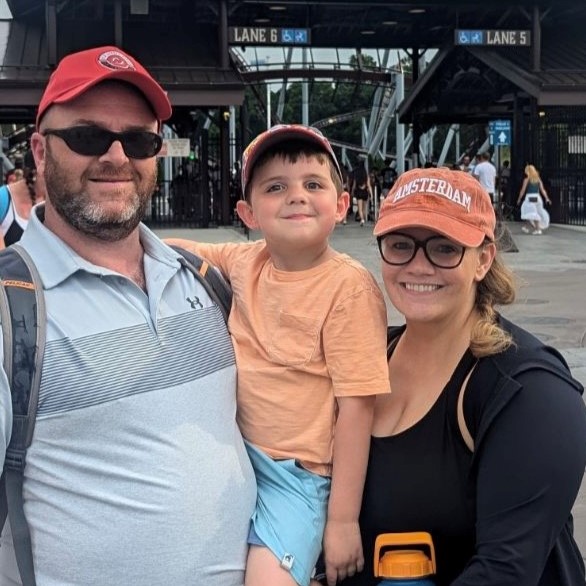
Kristin Rogers
Administrative Coordinator [email protected] | extension: 8-2496 Kristin Rogers is the Administrative Coordinator for the Department of Economics. She holds a bachelor's degree in Theatre Arts with a concentration in Technical Theatre from Rowan University, as well as a Master of Business Administration with a focus on Human Resources Management from William Paterson University. Kristin oversees the administration of Junior and Senior Recruiting initiatives within the department, as well as manages the Minor in Quantitative Economics. Additionally, she plays a key role in cultivating donor relations and provides crucial support to the Chair, Associate Chair, and Department Manager. Before joining Princeton, Kristin played pivotal roles in the performing arts, serving as Assistant Executive Director at Surflight Theatre in Beach Haven, New Jersey, and later as Assistant Production Coordinator at the Metropolitan Opera in Manhattan. Beyond her professional pursuits, Kristin leads as co-president of the Monmouth Junction Volunteer Fire Department Active Auxiliary, driving community engagement through numerous fundraisers and events. An avid reader, she has devoured over 150 romance novels this year alone, embracing both print and audiobooks. Kristin's creative talents shine in crafting, with her seasonal creations on display in JRR 200 during the holidays. She also delights in baking adventures with her 5-year-old son, Stephen. Kristin shares a fulfilling life with her husband, Justin Rogers, with whom she will celebrate their 8th wedding anniversary this November. Together, they cherish family travels, exploring destinations, enjoying cruises, and seeking thrills on roller coasters.
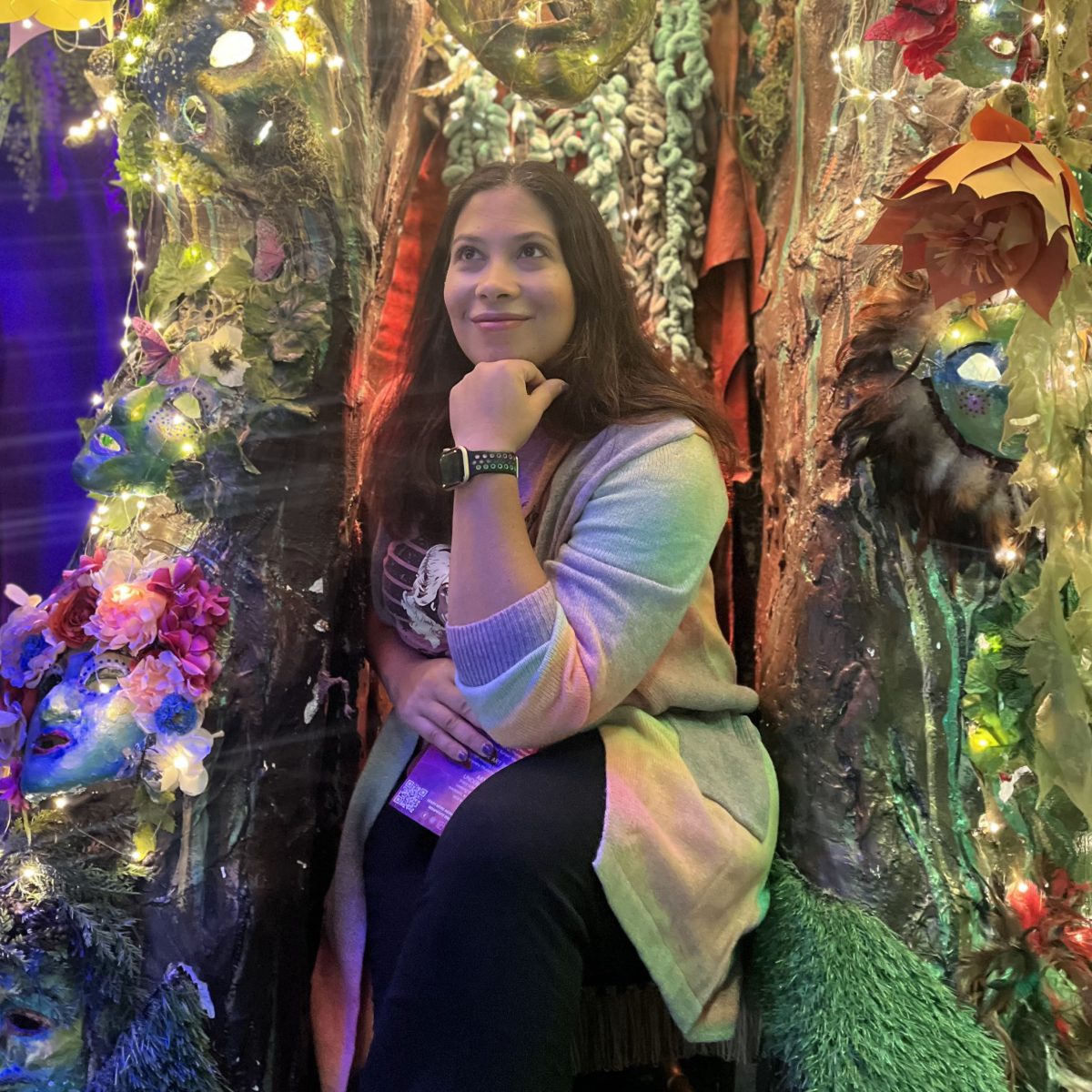
Christina Lipsky
Senior Manager, Finance and Administration [email protected] | extension: 8-4011 Christina Lipsky has been with Princeton University for eighteen years, starting in Electrical Engineering as a faculty assistant and progressing her career in various programs/departments such as Applied Mathematics, Architecture, and Economics. While working at the university, Christina earned her master's in Higher Education with a focus on instructional technology, because she is a massive nerd and also had a side hustle as a web developer for small businesses. Alas, those days of free time are long gone, as she is entering her fourth year as Senior Manager in Economics, where her duties include overseeing/onboarding faculty, staff, visitors, the department’s graduate/undergraduate programs, and its building. Before joining Princeton, Christina was an Associated Press award-winning journalist with The Star-Ledger, covering crime in Camden and Morris County, and at Forbes.com as lead news editor focusing on reviewing and test-driving luxury automobiles. So, if you have any opinions regarding true crime, the latest gadgets, or how overpriced cars have become, swing by my office to chat! When she is not at Princeton, Christina enjoys getting into mischief with her two young kiddos (Aria and Asher), husband (Josh), and new puppy (Miles).
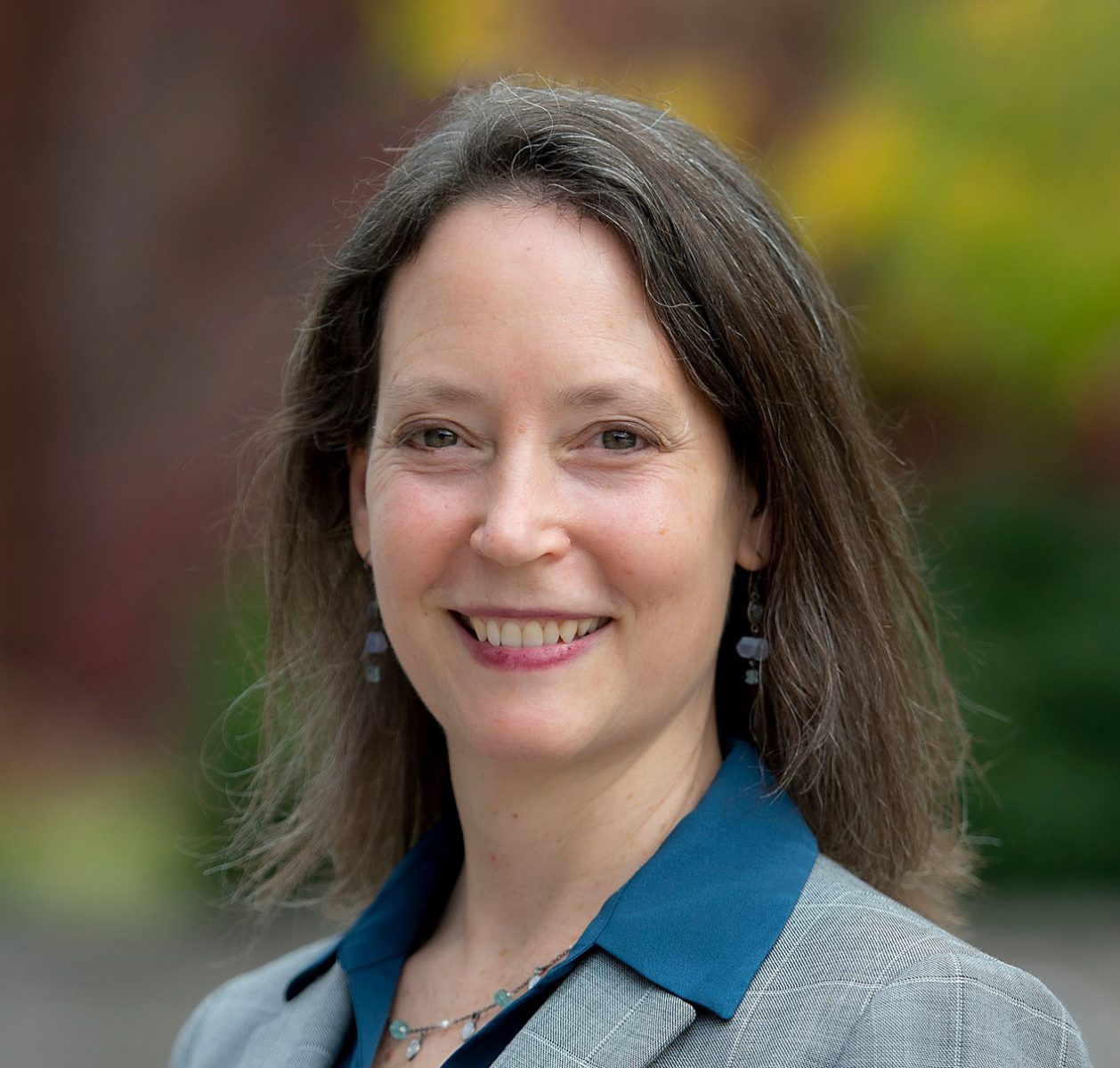
Dana Molina
Executive Director, Griswold Center for Economic Policy Studies [email protected] | extension: 8-5765 Dana Molina joined the Griswold Center for Economic Policy Studies in 2018. She serves as the Center’s Executive Director where she organizes high-level symposia events, recruits short- and long-term visitors whose time on campus includes book talks, student roundtables, seminars, and public talks, and manages student research forums and faculty and graduate student grants. She also oversees fundraising activities, attracting individual and corporate member support for economic policy research. Partnering with other centers across the university, Dana encourages interdisciplinary collaboration on a wide variety of topics related to economics. Dana spent the previous ten years overseeing account management and finance for SureTech, a cloud computing and IT services company she co-founded. Dana worked as the Director of Volunteer Programs at Partnerships for Parks in New York City, where she oversaw event logistics and sponsorship for large-scale volunteer events, as well as recognition and grant programs for local volunteer groups. Prior to that she was program manager for the Foundation for a Civil Society, for their initiatives in the Czech Republic and Slovakia. In her volunteer life, Dana is involved with many area non-profits and is currently on the boards of Housing Initiatives of Princeton and The Jewish Center. She also volunteers with the Princeton Mobile Food Pantry and The Friends of Princeton Open Space. Dana enjoys traveling to new places, stand up surfing, and gardening. Her husband Alberto is a serial entrepreneur and is currently running the technology for a new photo product site and also enjoys writing poetry and playing improvisational music. Their daughter Catalina will be a freshman at Princeton this fall and son Milo will be a junior at Princeton High School. Dana loves walking their dog Rocco around town. He can often be found in her office waiting to greet any dog lovers. She received her B.A. from Yale University and served as Peace Corps Volunteer in the Czech Republic and can still speak some Czech.
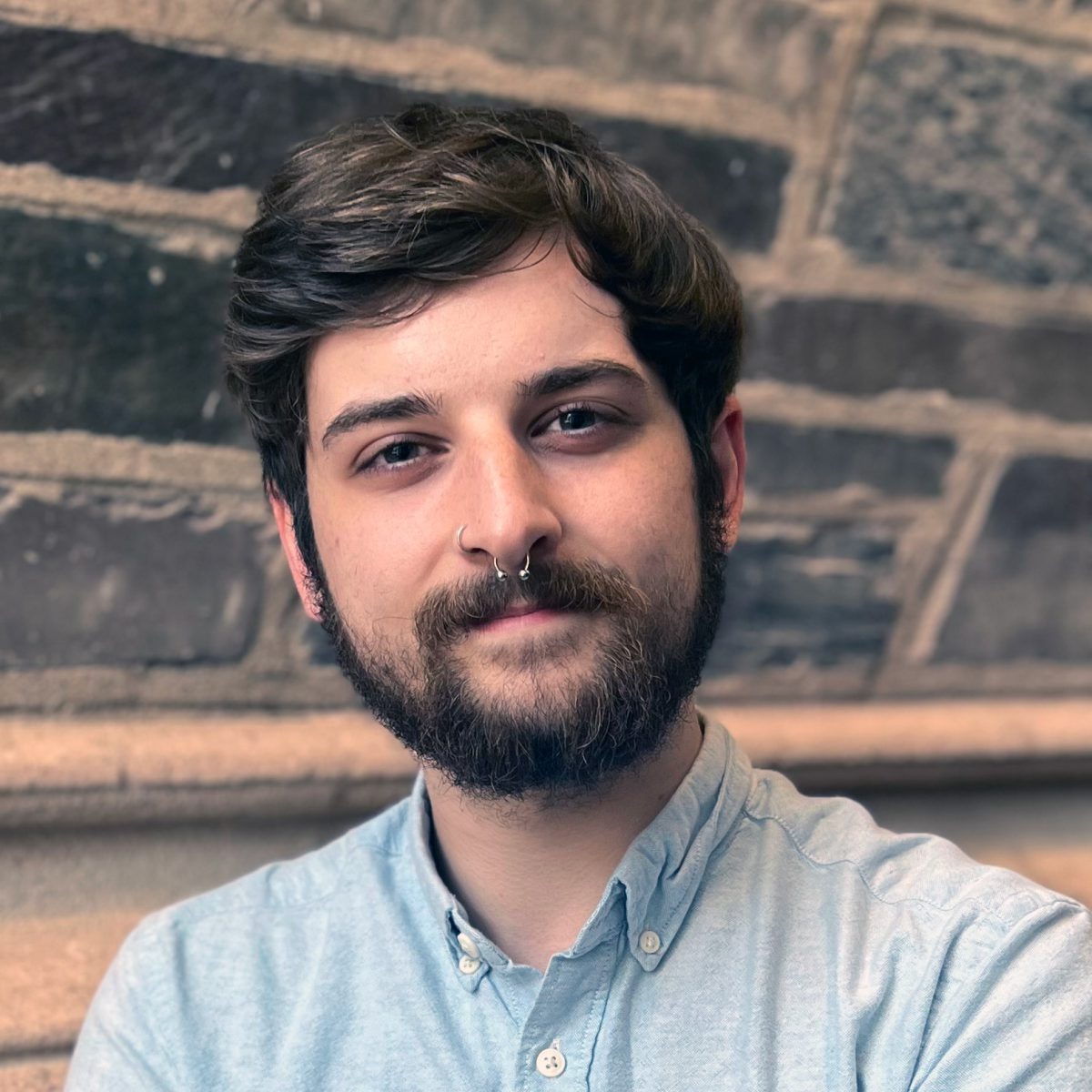
Connor Reid
Technical Support Specialist [email protected] | extension: 8-3892 As the Technical Support Specialist for the Economics Department, Connor Reid focuses on ensuring our technology runs smoothly. His responsibilities include troubleshooting technical issues, managing and supporting classroom and meeting room technology, purchasing IT equipment, and overseeing the department's various servers. In all that work, Connor’s goal is to make sure that everyone in the department—whether they’re working in the office or remotely—has everything they need to work efficiently and productively. Connor began his journey in IT at Mercer County Community College, where he pursued studies in Information Technology. Before joining Princeton, he worked as a Service Desk Analyst at News Corp, where he provided IT support for major media entities like Dow Jones and The Wall Street Journal, as well as other companies within their network. Outside of work, Connor is passionate about collecting comic books, horror movies, and vintage video games. He also enjoys staying active through hiking and running in the many parks and nature preserves around New Jersey. Additionally, he has a deep passion for live music, particularly within the heavy metal scenes, which he actively follows and supports.
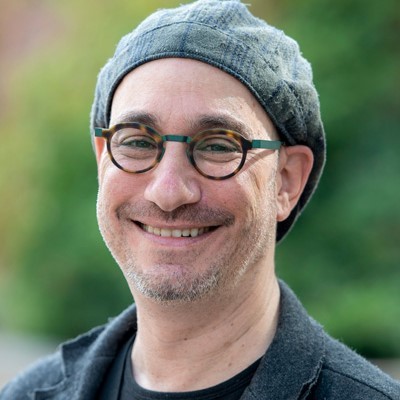
Charles Saltzman
Web Developer [email protected] | extension: 8-5151 Born in Paterson NJ, Charles Saltzman left the varsity soccer team for marching band his senior year of high school, also forming a rock/pop band called the Bemhos with his friends. He would continue in marching band at Rutgers University, where he majored in Mathematics and Art History with a minor in Music. He also played organ/keys at all local Rutgers Basketball games, including more than a few at Madison Square Garden. After college, Charles headed across the country to pursue a Master of Architecture degree at the University of California at Los Angeles. While completing his Master’s thesis in the computer lab, he discovered a fledgling entity called the World Wide Web and taught himself HTML. Following graduation, seeing the demand for web designers and developers in the burgeoning new industry, he took up the web as a career. Following a lengthy stint at Freedom Magazines, Charles took a sabbatical from the corporate scene to bartend in Culver City for a few years. He returned to the digital world to design musical greeting cards for American Greetings Interactive. After the shutdown of the musical greeting cards division, he quickly found his way into a small startup called MySpace, where he worked as their first full-time designer. Following the company's acquisition by News Corporation, he watch it grow into a multi-national social media giant. He finished his tenure at MySpace as Manager of Design and Development. After another couple of years bartending, Charles returned to a web development role for Signature Card Services, a position he would occupy through a move back to the east coast to spend valuable time with family. At this point, Charles took a job in the Economics Department at Princeton University where he remains to this day. But in case you were wondering: The Bemhos recently celebrated their 38th anniversary, with all six original members still in the band, and continue to perform regularly to this day.

Laura Sciarrotta
Finance Manager [email protected] | extension: 8-2858 Laura Sciarrotta is the Finance Manager for the Economics Department, a position she has held for over fifteen years. A graduate of Muhlenberg College, Laura earned her CPA license after completing her studies, setting the stage for a career in accounting. She began her professional journey at Deloitte & Touche, where she honed her skills as an auditor and was even part of the team that audited Princeton University itself—a unique experience that would later bring her full circle back to Princeton! After her time at Deloitte, Laura took on the role of Senior Accountant at Cigna in Philadelphia, where she gained insights into corporate finance. She then returned to the Princeton area, serving as the General Accounting Manager at Bracco Diagnostics, Inc. for several years. While the corporate world provided her with a wealth of experience, Laura knew she wanted to spend her career in higher education. This led her to join the Economics Department at Princeton, where she has found fulfillment in supporting the academic mission of the university. When she’s not crunching numbers or managing budgets, Laura enjoys a variety of hobbies. She is an avid crocheter, often creating beautiful pieces for family and friends. A true Jersey girl at heart, Laura loves spending time at Long Beach Island, where she enjoys the sun, surf, and sand. Laura lives in Lawrenceville, NJ, with her husband and son, and can frequently be found cheering on her son at his baseball and basketball games.
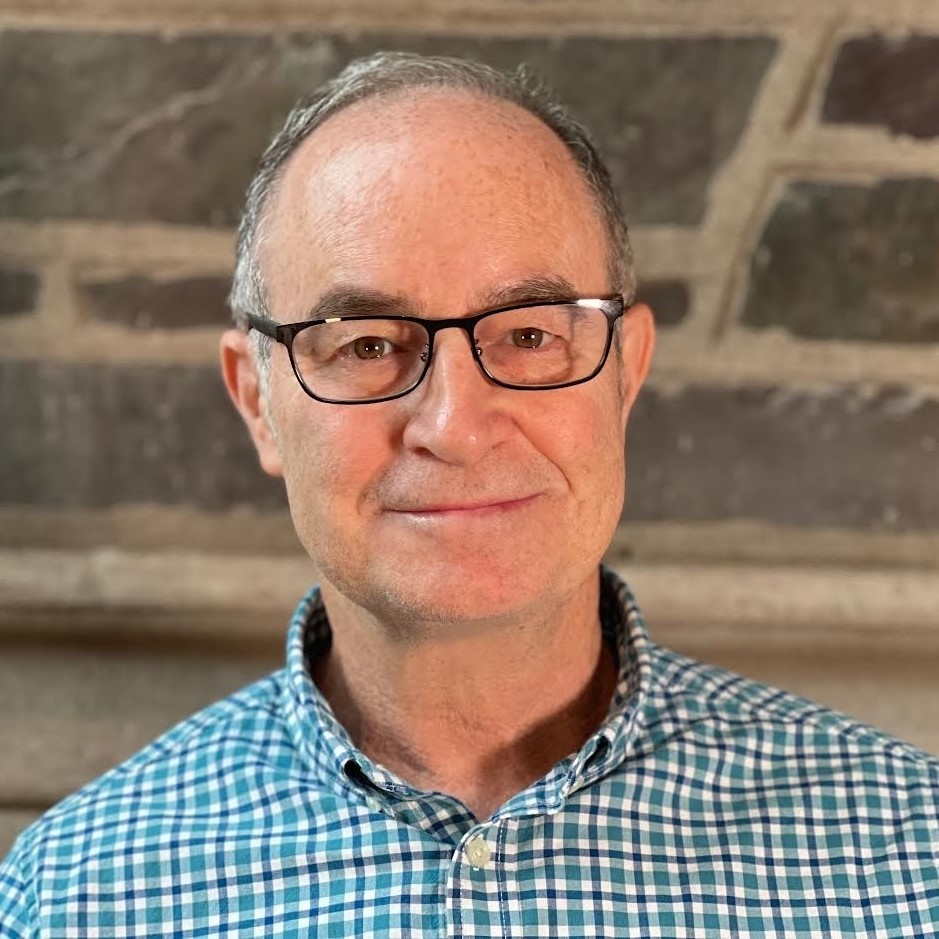
Stu Sternbach
Department Office Support [email protected] | extension: 8-4001 Stu Sternbach joined the department in 2021 when, after twenty years commuting to New York City on the New Jersey Transit, he finally had the courage to walk away from the small creative business he founded many years prior. Through this business, Stu represented artisans in the fields of television production with a focus on on-air commercials and high-end video content. His clients were mostly advertising agencies and Fortune 500 companies. As an agent, he worked closely with film directors, editors, animation studios and music houses securing work and managing the relationships between talent and agency. He was also fortunate to have worked with the Universal Studios Florida Production Group as a freelance business developer for their shooting stages. Prior to working at Princeton, he also had more than a handful of jobs that included producing pharma videos and teaching music for commercials as an adjunct professor in New York. These days, his creative endeavors continue by teaching instrumental music and performing in various bands. He plays a few instruments and composes on occasion, so if you’re a musician or singer please make sure to let him know. In fact, if you are reading this, why not sign up for his Wintersession harmonica course. It's a lot of fun. Anyway, he’s a local dad and his two daughters live close by, so he’s looking forward to staying at Princeton and working closer to family.
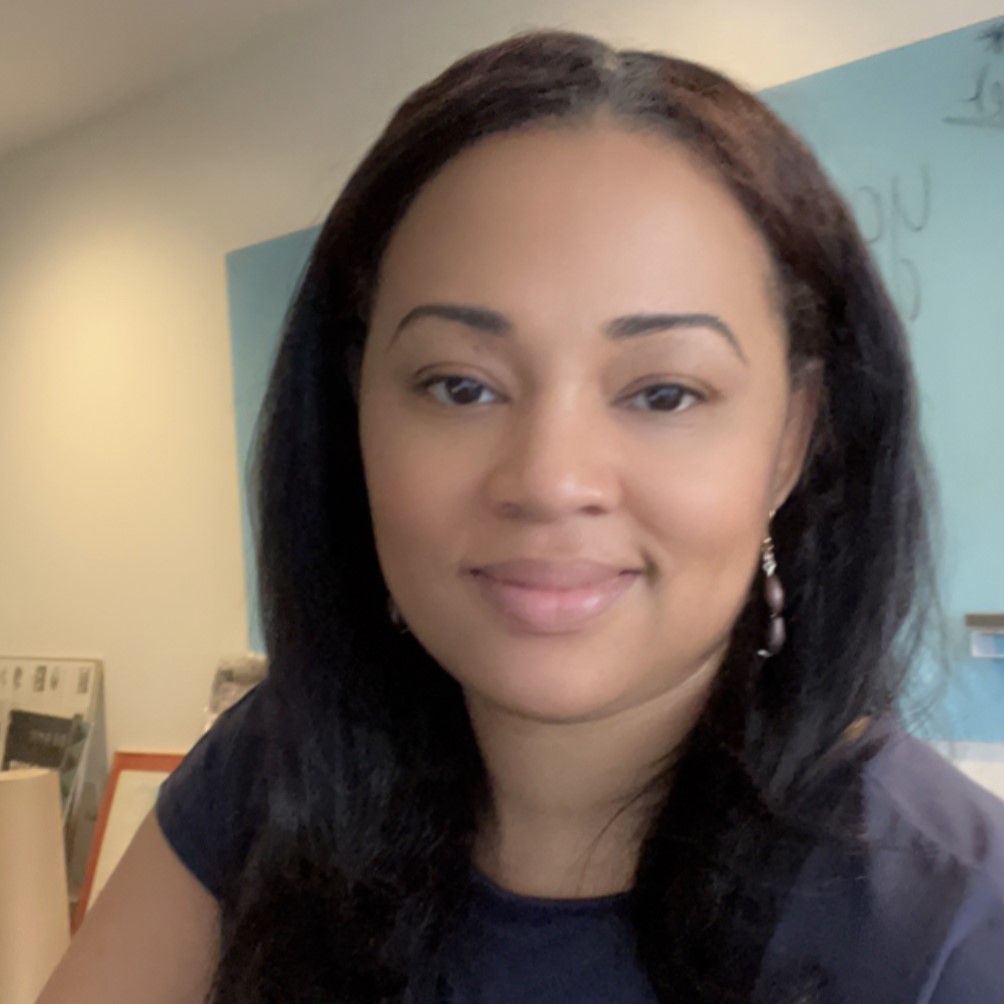
Michi (Michiko) Statham
Event Coordinator [email protected] | extension: 8-7986 Michi Statham is a dedicated Event Coordinator for the Department of Economics. where she enjoys crafting unforgettable experiences for students, faculty, staff, and visitors. With her vibrant spirit, she brings people together through beautifully orchestrated events that reflect her attention to detail and creativity. Beyond her work, Michiko is a lover of all things creative—whether she’s indulging in her latest craft project, exploring new travel destinations, or embracing the great outdoors through exercise, short hikes, swimming, pickleball, occasional basketball and backyard barbecues with family and friends. An avid music enthusiast of sorts and self-proclaimed movie buff, she can also be found discovering new culinary delights, making her a true foodie at heart. Michiko is particularly proud of her journey in raising outstanding children, believing that nurturing the next generation is her most rewarding adventure. Passionate about owning her own event planning business, she balances her career with a warm, friendly nature that leaves a lasting impression on everyone she meets. For Michiko, happiness is intertwined with family, friendships, and the joy of creating moments worth celebrating.
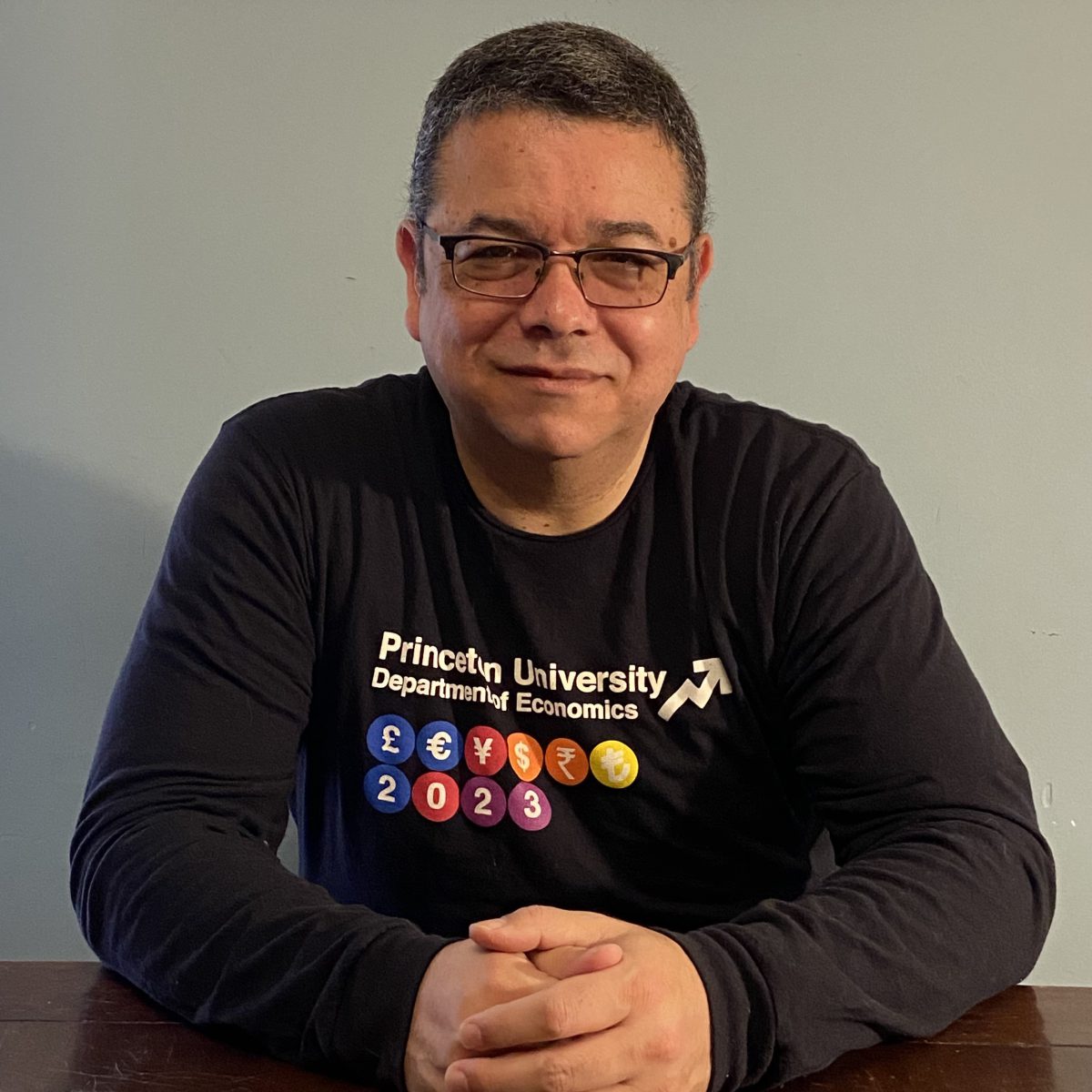
Oscar Torres-Reyna
Head of the Economic Statistical Services (ESS) Unit [email protected] | extension: 8-3067 Oscar Torres-Reyna serves as the head of the Economic Statistical Services (ESS) Unit in the Department of Economics. With an impressive career that began at Princeton in 2007, Oscar has become a pivotal figure in the academic community, known for his expertise in data analysis and his dedication to teaching. In addition to his role at Princeton, Oscar is a part-time lecturer at Rutgers University-New Brunswick, where he teaches statistics and data analytics in the Economics Department. This dual role at two prestigious institutions underscores his commitment to nurturing the next generation of statisticians and economists. Oscar's academic journey is marked by a diverse and robust educational background. He holds degrees in economics, statistics, public administration, and political science, reflecting a broad and interdisciplinary approach to his work. This diverse educational foundation has equipped him with a unique perspective on the application of statistical methods across different domains, allowing him to bridge gaps between theoretical research and practical application. Over his 33-year career, Oscar has amassed a wealth of experience across the federal government, the private sector, and academic settings. This extensive experience has provided him with a deep understanding of the complexities and nuances of data analysis in various contexts. His work is characterized by a dual focus: extracting meaningful insights from data and effectively communicating these insights to a broader audience. At the core of Oscar's professional and academic endeavors is a passion for data analysis. He believes in the power of data to uncover hidden patterns, answer critical questions, and inform decision-making processes. His work often involves assisting students in applying sophisticated statistical techniques to analyze economic data, and advising on how to find valuable insights that drive both their understanding of academic research and the relevance of practical policy decisions. Equally important to Oscar is his commitment to education. He has dedicated a significant portion of his career to teaching and mentoring students, particularly those who may not have a background in statistics or econometrics. He understands that these fields can be daunting to newcomers and strives to make them accessible and engaging. His teaching philosophy is rooted in clarity, patience, and enthusiasm, aiming to demystify complex concepts and empower students with the skills they need to succeed. Oscar's contributions to the field are not limited to the classroom or his direct professional responsibilities. He has collaborated with other units across campus that seek to advance the teaching of data analysis and the application of statistical software, continuously working to push the boundaries of knowledge and practice in his field.
Office of the Dean for Research
Research profile.
Facts and figures
1,289 faculty, including full time, part time and visiting
3,142 graduate students, 31 nobel-prize winning faculty and staff, 42 doctoral departments and programs, 1,588 research funding awards, $390m in annual sponsored research expenditures*.
*Includes Princeton Plasma Physics Laboratory. See our Sponsored Research Report.

A Vibrant Research Ecosystem

World-class Facilities
Princeton's research facilities are state-of-the art. Most facilities are available to researchers across disciplines and departments. Learn more about our facilities.

Faculty Honors
Award-winning research is part of the way that Princeton fulfills its commitment to serving humanity. Many current and former faculty members have achieved high honors.

Research Funding
Princeton receives nearly $400 million in research funding annually. The majority of outside funding comes from federal agencies, with a substantial fraction from industry and foundations.

IMAGES
COMMENTS
The Ph.D. program in Politics seeks to train students to assume faculty positions at a range of institutions of higher education and supports students pursuing a range of substantive research in the discipline. If you ask graduate students to identify the program's strengths, they will mention: An across-the-board commitment to excellence in ...
The graduate program in the Department of Politics leads to the doctor of philosophy (Ph.D.) degree in politics. The program is designed to offer broad professional training in political science and to enable students to specialize in any of the main subfields of political science (American politics, comparative politics, international relations, and political theory), as well as public law ...
Admissions & Financial Support. Learn more about admission to our Ph.D. program as well as the generous financial support that all admitted students receive. Princeton has one of the largest and most intellectually diverse faculties in political science in the United States, while maintaining a graduate program of relatively modest size.
Overview. The Program in Political Philosophy is available to students with interests in one or more of three areas: (1) the history of political ideas, (2) the investigation of contemporary problems of political philosophy, and (3) the study of the relations between institutional and social history and systems of political thought.
Plan of Study. Designed as a five-year program, the Ph.D. in Politics requires approximately two years of courses, a general examination, and research and teaching, which culminates in the final public oral examination. All graduate students in Politics are candidates for the Ph.D. There is no separate M.A. program.
Amaney Jamal, dean of SPIA, the Edwards S. Sanford Professor of Politics, and professor of politics and international affairs, has been awarded the 2024 Susanne Hoeber Rudolph Outstanding Scholar Award. Until four or five years ago, there wasn't really any way for me to identify first-generation students or for them to identify me.
The Princeton School of Public and International Affairs offers a Ph.D. in Public Affairs in two research clusters: Security Studies; and Science, Technology, and Environmental Policy (STEP). Graduates pursue careers in academia, government agencies, policy think tanks, nonprofit agencies, and in the private sector.
For questions regarding uploading materials, please call the Graduate Admissions Office at (609) 258-3034 or email [email protected]. New graduate student cohort: 2019-20. Along with your application, you must submit a writing sample (25 page maximum) and a personal statement (1,000 word maximum). The writing sample should be a seminar ...
Overview. The Princeton School of Public and International Affairs (SPIA) offers a distinctive curriculum that strikes a careful balance between theory and practice. Graduate students spend time developing analytical skills and acquiring a substantive knowledge about the world's most important domestic and international issues.
001 Fisher Hall, Princeton, NJ 08544-1012 T (609) 258-4760 F (609) 258-1110
Undergraduate study is focused in four areas: American politics, comparative politics, international relations and political theory. There also is a strong concentration of courses in the areas of quantitative analysis, political economy, and strategy in politics. The graduate program is designed to offer broad professional training in political science and to enable students to specialize in ...
Learn more about current job market candidates and past placements. While students complete their dissertations, the department works actively to help them find appropriate employment. The following Ph.D. students and recent graduates are seeking employment this academic year.
The Princeton School of Public and International Affairs (formerly the Woodrow Wilson School of Public and International Affairs) is a professional public policy school at Princeton University.The school provides an array of comprehensive coursework in the fields of international development, foreign policy, science and technology, and economics and finance through its undergraduate (AB ...
The Politics program from Princeton University leads to the doctor of philosophy (Ph.D.) degree in politics. The Politics program from Princeton University is designed to offer broad professional training in political science and to enable students to specialize in any of the main subfields of political science (American politics, comparative ...
The Program for Quantitative and Analytical Political Science (QAPS) was established in 2009 to support theoretical and quantitative research in political science and its dissemination. ... We support graduate students through QAPS fellowships, host post-doctoral research fellows, ... Princeton, New Jersey 08544-1012 USA - (609) 258-4760 ...
The graduate program is designed to offer broad professional training in political science and to enable students to specialize in any of the main subfields of political science, as well as public law, and formal and quantitative analysis. ... engineering and the social sciences. The graduate certificate is designed to formalize the training of ...
Alisson Ramos is a PhD Student in Politics and Social Policy. Her specialization lies in American politics and Racial and Ethnic politics. She received her BA from the University of California Los Angeles (UCLA) in political science and chicano/a studies. She identifies as a first-generation college student, Angeleno, and Latina.
Duke University. Durham, NC. #10 in Political Science (tie) Save. 4.3. Find the best political science program for you using US News' rankings. See the top programs ranked by their peer assessment ...
Politics students should take the two-semester political economy sequence ECO 520 and POL 584. In addition, students are required to take, on a graded basis, two graduate courses in economics, not including the economics part of the political economy sequence (ECO 520). Normally, these would be the microeconomics courses ECO 501 and 502, but ...
Courses in sociology, psychology, economics, statistics and political science can help students succeed in a medical career. Kathleen Franco, M.D., M.S. Aug. 20, 2024 LSAT Writing Sample: What to Know
Discover why you should study a PhD Programme in Political Science, your study options, the best universities, useful resources, career options and more. ... Princeton University: Princeton, United States : 3 : 8 : London School of Economics and Political Science: London, United Kingdom : 4 : 3 : Columbia University:
Graduate Program Administrator [email protected] | extension: 8-4006 Laura Hedden has been the department's Graduate Program Administrator since 2010. Prior to joining the Department of Economics, Laura was an adjunct professor of music at Rider University and Westminster Choir College, and a lecturer in Princeton's Department of Music.
1,289 faculty, including full time, part time and visiting3,142 graduate students31 Nobel-prize winning faculty and staff42 doctoral departments and programs1,588 research funding awards$390M in annual sponsored research expenditures**Includes Princeton Plasma Physics Laboratory. See our Sponsored Research Report.
Detailed information about PhD degree programs can be obtained here: [email protected]; 8 (800) 101-18-99 ... Welcome to the official English channel of Peter the Great St. Petersburg Polytechnic University. ... Political Science 5.5.1. History and Theory of Politics 377 400 5.6. Historical Sciences
Programme description. The programme is focused on the training of highly qualified analysts, managers and political leaders who will link their careers with the field of public administration and policy, including government agencies, international organisations, business and the non-profit sector. It includes the key and auxiliary disciplines.